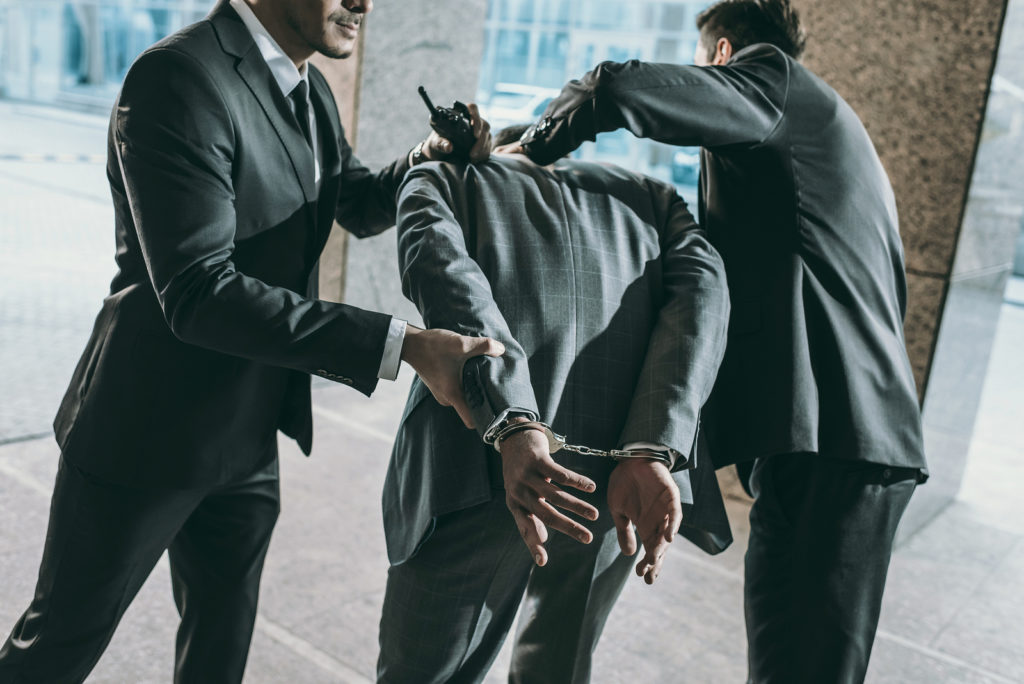Do I have to stop when a police officer asks?



Merriam-Webster’s Dictionary defines discrimination as,
It can also mean the act of distinguishing or differentiating. But in the area of civil rights, discrimination isn’t always cut and dried.
Colorado is one of the many states that have employment-at-will. This means that you or your employer can implement or terminate your employment at any time. Two weeks’ notice is a business practice, not the law, and you can be terminated on a moment’s notice, without notice. The company doesn’t need a reason, nor do they have to let you know in advance (although many companies do give advance notices of layoffs.)
You also don’t need a reason to quit, nor let your employer know in advance that you are terminating your employment. However, giving inadequate notice may affect your application for unemployment benefits. (Even if you are discharged for a different reason like medical conditions, harassment in the workplace, and hazardous working conditions, you can still apply for unemployment.)
If you ask most people, they’ll probably tell you that discrimination doesn’t really exist anymore because of the legal protections in place. Unfortunately, that’s not actually true. Discrimination is a little harder to prove, but it does still exist in various forms.
The US has a number of laws against workplace discrimination:
Other forms of discrimination may be based on religion or sexual orientation, harassment, (sexual and non-sexual), and retaliation. Individuals in these groups are known as “protected classes,” and may be the focus of discrimination.
Discrimination can manifest in two ways:
For instance: early retirement may be offered to employees who have been with the company for many years and are eligible for retirement. But in many cases, mandatory retirement may amount to age discrimination.
Another instance is a company adding a requirement to a job function knowing that some individuals could not meet the requirement.
Here are some questions to consider whether you are being discriminated against:
These are just some of the ways you may be able to determine if there is discrimination and not a complete list of questions to ask.
Most employers will deny any and all accusations of discrimination, even if it’s blatantly obvious. You’ll need some tools in your arsenal to fight back.
If you believe you’re being targeted for discrimination, your best defense is to document as much as you can. Direct evidence is best, but you may only have circumstantial evidence.
Whatever you have to give to your attorney will go a long way in helping him or her defend you in a discrimination complaint.
There are strict laws in the U.S. against discrimination. If you believe you’ve been the target of workplace discrimination, call the Civil Rights Litigation Group in Denver at (720) 515-6165 for a free consultation. We’re experienced in helping people like you fight back. We can help you file your EEOC complaint, and represent you in court when the time comes.
A wrongful arrest (also called “false arrest”) can happen to anyone at any time. You may look like someone the police are looking for, you may have been misidentified by someone (intentionally or unintentionally) or just may be in the wrong place at the wrong time. An arrest can be embarrassing, particularly if you’re not guilty. But if it happens, here’s what you need to prove you that should not have been arrested.

Wrongful arrest is a violation of your Fourth Amendment protections against unlawful search and seizures. Both private citizens and law enforcement personnel can commit a wrongful arrest. You can also sue for damages by way of a civil lawsuit.
Even if you know you’re being wrongfully arrested, resisting arrest is also a crime. It may be legal to resist a wrongful arrest, but you can still be charged. You’ll still have the right to speak to an attorney, and the right to a fair trial to prove your innocence. Always be polite, and never threaten a law enforcement officer or another individual during the arrest process.
Exercise this right, especially in the case of a wrongful arrest. Make sure you ask for and have an attorney available whenever you speak to the police. Don’t wait for them to read you the “Miranda Warning,” since anything you say at the time of arrest can also be used against you. Give no statements until you can speak to an attorney.
Police have procedures they must follow when they obtain a search warrant. But if you permit a search without a warrant, your rights may not be respected. The Fourth Amendment protects you from unwarranted searches.
Private citizens can also commit a wrongful arrest by detaining you and not allowing you to leave, violating your Fourth Amendment rights. An example is a private security guard in a retail store detaining you for shoplifting without witnesses or other probable cause. If there is cause, a guard can detail you temporarily until the police arrive to take over. But detaining someone without cause becomes a wrongful arrest or false imprisonment.
The ACLU offers this guide to knowing and understanding your rights when dealing with law enforcement in the state of Colorado.
You’ll need to make four points in your case:
Probable Cause allows a police officer to make an arrest on someone if he or she has sufficient reason to believe at the time of the arrest that the individual has or intends to commit a crime. It does not matter if the individual is guilty of a crime — that’s addressed in court. Should an individual claim probable cause, they can use it as a defense for wrongful arrest.
Wrongful arrests can happen to anyone, anytime. If you’ve been wrongfully arrested, or your civil rights have otherwise been violated, an experienced civil rights attorney will fight for your rights. Call the Civil Rights Litigation Group at (720) 515-6165. Schedule your free consultation with us today. We’ll defend you against wrongful arrests and other overreaching actions by police, and help you clear your name.
A police officer has just taken you into custody. You haven’t done anything wrong, but he or she is reading your Miranda rights to you while putting you in handcuffs. Has the officer explained the charges? Do they have probable cause for arrest or is it wrongful arrest? What evidence do they have to hold you?
 You’re in a shop, or somewhere out in public, and suddenly you’re not free to leave. Someone shouts, “citizens’ arrest!” Maybe there is more than one individual restricting you from leaving. You’ve done nothing wrong, but now you’ve found yourself in an arrest situation, and the police are on their way.
You’re in a shop, or somewhere out in public, and suddenly you’re not free to leave. Someone shouts, “citizens’ arrest!” Maybe there is more than one individual restricting you from leaving. You’ve done nothing wrong, but now you’ve found yourself in an arrest situation, and the police are on their way.
This scenario is typically seen in retail shops where an owner or employee believes that someone has been shoplifting. A citizen can only hold an individual until the police arrive, or to give them an opportunity to recover stolen merchandise from a suspected thief. But again, you know you’ve done nothing wrong and haven’t stolen anything.
Wrongful arrest, also called false arrest, means unlawfully confining an individual against their will by someone who does not have legal authority to do so. If there is no legal cause to hold an individual, such as a warrant for their arrest, suspicion or probable cause, the arrest can be called wrongful if they are not free to leave. While this isn’t hard-and-fast law, it covers a broad range of improper confinements.
Wrongful arrest or false arrest is an intentional tort, and is a civil rights violation. That is, the individual committing the arrest willfully intended to deprive someone of their Fourth Amendment rights, which protects you from illegal searches and seizures. While the police do make mistakes, it may be up to you as the defendant to prove that you were wronged and clear your name in court.
Wrongful arrests happen, even under the best of conditions, and will catch you unaware. Don’t let it ruin your life. What you do next can determine the final outcome, good or bad. In this situation, you should:
A wrongful arrest brands you a criminal, and has far-reaching effects that can damage your good name. An experienced civil rights attorney can examine the facts of your case, determine if you have one, and advise you on the next steps. He or she can determine if you have a good case for wrongful arrest, and what it will take to bring disciplinary action, if the police are involved, or a civil rights lawsuit against individuals.
If you believe you’ve been wrongfully arrested, or that your civil rights have been violated, call the Civil Rights Litigation Group at (720) 515-6165. Schedule your free consultation with us today. We’ll help you fight back and help you clear your name.

TASER is the brand name of a CEW (conducted electrical weapon) frequently used by law enforcement officers. They were adopted by law enforcement as a non-lethal way to stop suspects who might otherwise have been shot with a firearm. Police often use a TASER to stop a suspect who is not an immediate danger to them or to public safety, or to stop someone who may cause harm to themselves. However, using a TASER can be both a good and bad solution as an alternative to firing a weapon. Worldwide, the TASER is used by over 15,000 law enforcement agencies in 40 countries. Although the TASER is considered to be a non-lethal weapon, it is somewhat controversial. Deaths have also been associated with their use.
Excessive force, a violation under the Fourth Amendment, means that a law enforcement officer used physical force beyond what was necessary at the time to stop an immediate threat, or to subdue and/or arrest an individual. The excessive force could have potentially caused serious injury. Laws governing the use of excessive force vary from state to state, and there is no federal definition of excessive force. The court and the jury have to examine all evidence and claims under 42 U.S.C. Section 1983 of the Civil Rights Act of 1871 to decide if a police officer was justified in using excessive force. An excessive force case against the police would be a civil suit, not criminal, and is known as a Section 1983 suit.
Police have to make a split-second decision on which weapon to draw, and pulling out a TASER is at the officer’s discretion. They’re usually used if the officer needs to stop someone, but deadly force isn’t warranted. If you want to pursue a case against the police, you’ll need an experienced civil rights lawyer who can help explain your options.
Courts consider excessive force cases with a TASER using:
• Severity of the crime that the individual is being arrested for
• If the individual is a threat to the officers or to the general public
• If the individual attempts escape or resists arrest
TASERS are frequently used when an individual is resisting arrest, or the police officers believe there is an immediate and severe threat from the individual. However, someone who did not pose a serious threat when arrested and was found to receive excessive force can also sue the police officer, police department and municipalities for their injuries. If you were subjected to physical force that could have caused your injuries, such as the use of a TASER, contact a civil rights attorney immediately to examine your case.
In the case of Powell v. Haddock, 366 Fed.Appx. 29 (11th Cir. 2010), the police were found to have used excessive force which included using a TASER. The individual complied with the officer’s instructions, was not a threat to the officers or to public safety, backed away from the officer before the first application of the TASER and was on the ground for the second.
In deciding excessive force cases, courts also take into consideration:
• The extent of injuries
• If officers identified themselves as police
• If the officers informed the accused that they would use a TASER if he or she did not comply with instructions
Courts tend to uphold the use of a TASER when an individual is actively resisting, or if an individual was posing an immediate threat or safety risk, called qualified immunity. Police officers are given a wide range of protection when it comes to the use of force. Excessive force cases are not always cut and dried—there may be extenuating circumstances which warrant the use of a TASER. However, courts generally don’t sanction officers who use a TASER on someone who is unconscious, already subdued and/or handcuffed and wasn’t resisting.
Where do you start? Evidence is vital to proving a case of excessive force. Our attorneys specialize in civil rights cases. We’ll review and start your case to defend your rights. If you’ve been the victim of police abuse with a TASER, contact the Civil Rights Litigation Group at (720) 515-6165 in Denver today for a free consultation.
For a free, no-obligation consultation with our Denver law firm, call us today at (720) 515-6165.